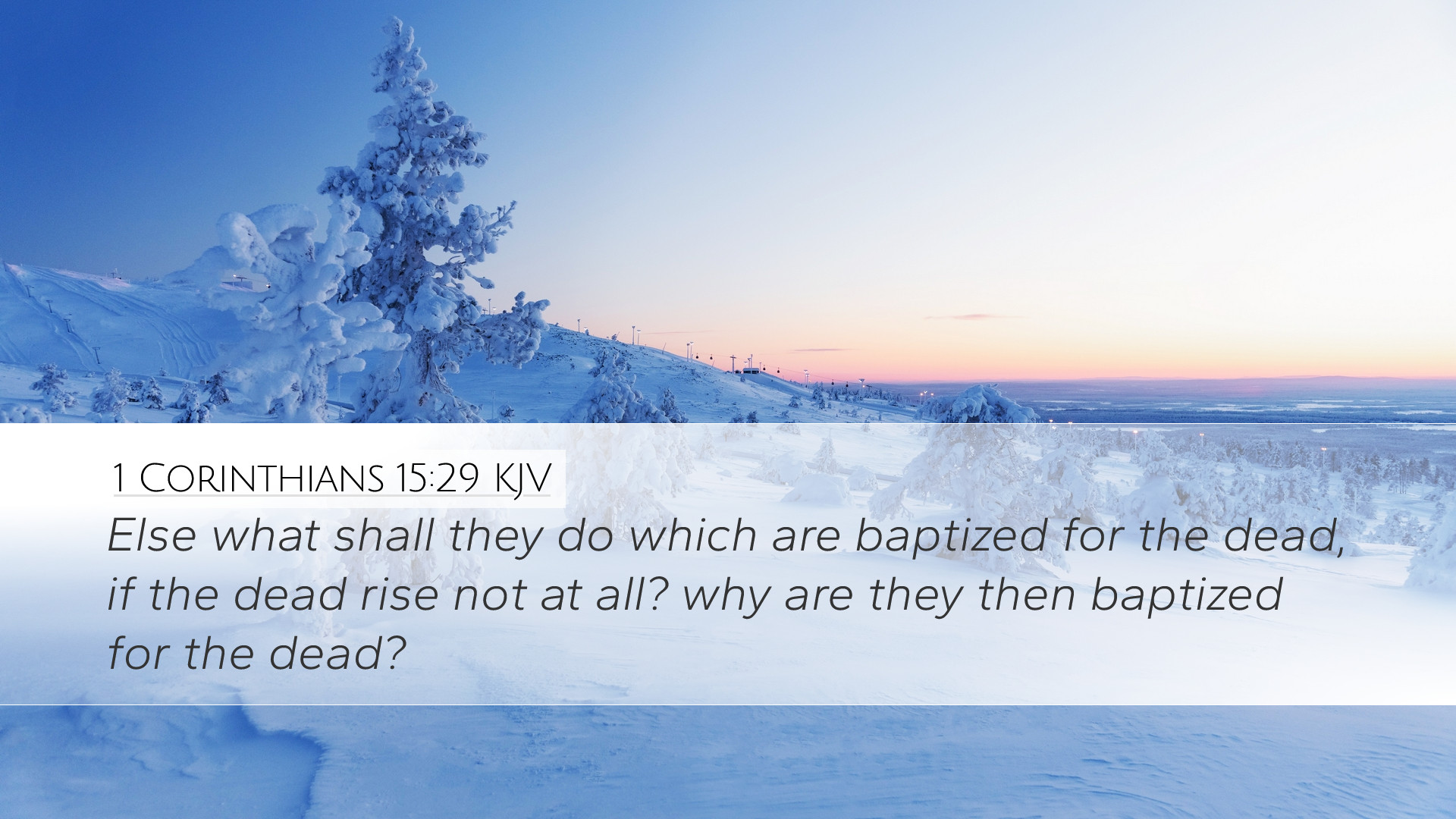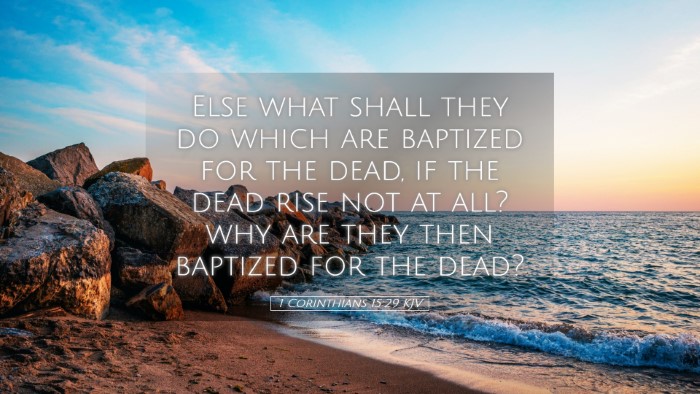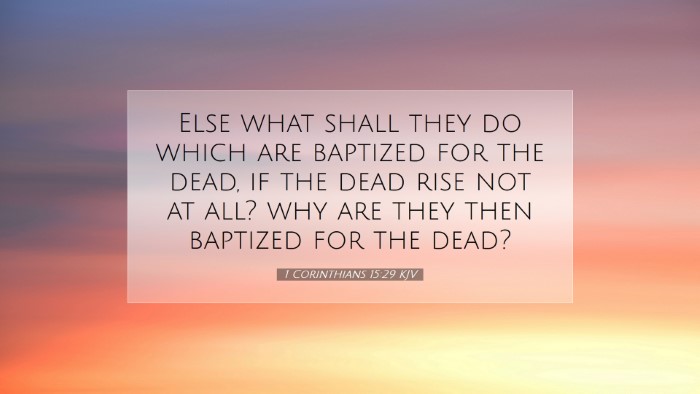Commentary on 1 Corinthians 15:29
1 Corinthians 15:29 reads: "Otherwise, what will those do who are baptized for the dead? If the dead are not raised at all, why then are they baptized for them?"
Introduction
This verse presents one of the more enigmatic topics in Pauline theology: the practice of being baptized for the dead. The apostle Paul introduces this concept in the context of defending the resurrection of the dead. Understanding this verse requires careful consideration of its cultural, theological, and historical contexts.
The Importance of Context
It is crucial to note that Paul is writing to the Corinthians, a community grappling with various doubts regarding the resurrection. Throughout Chapter 15, Paul systematically addresses these concerns, affirming the pivotal Christian doctrine of resurrection from the dead.
Insights from Public Domain Commentaries
Matthew Henry's Commentary
Matthew Henry emphasizes that this verse is enigmatic and has led to various interpretations throughout church history. He suggests that Paul employs baptism for the dead as an illustration of the necessity of belief in the resurrection. Henry remarks that if there is no resurrection, such practices would be meaningless, illustrating the inconsistency of actions that imply belief in what is ultimately false.
Albert Barnes' Notes on the Bible
Albert Barnes presents a more analytical perspective, suggesting that this practice may reflect a custom known to the Corinthians but strange to outsiders. He meticulously discusses the various interpretations of what it means to be baptized for the dead, noting that some scholars believe it could refer to a vicarious baptism, where living individuals are baptized in place of deceased loved ones, hoping for their salvation. Barnes concludes that Paul's underlying message emphasizes the importance of the resurrection and challenges believers to reflect on their doctrines and practices in light of this truth.
Adam Clarke's Commentary
Adam Clarke delves into the cultural implications of the verse. He underlines that this practice, whether literal or metaphorical, would only make sense in a framework where resurrection was accepted. Clarke extensively analyzes different theories surrounding the phrase "baptized for the dead." He points to early Christian practices that connected the living to the dead in hopes of their ongoing spiritual journey. For Clarke, this verse raises profound questions about the nature of faith, hope, and the communal experiences of early Christians regarding resurrection.
Theological Significance
The theological implications of 1 Corinthians 15:29 reach beyond the practice described. Paul is invoking a paradox that compels the Corinthian believers to examine their convictions about resurrection. It suggests that communal practices (like baptism) are not merely rites of passage but deeply connected to the core belief in life after death.
Practical Applications
For modern pastors, theologians, and scholars, several key applications emerge from this verse:
- Examination of Doctrine: Continuous assessment of beliefs about the fundamental doctrine of resurrection is critical. It is essential for maintaining the integrity of Christian teaching.
- Encouragement of Community Practices: Church communities should consider how their practices reflect their beliefs and how these rituals serve as teaching tools that reinforce doctrinal truth.
- Addressing Doubts: Just as Paul addressed doubts among the Corinthians, leaders today are called to confront skepticism graciously while reaffirming the hope found in the resurrection.
- The Nature of Faith: This verse and its context encourage believers to reflect on the nature and implications of their faith. Baptism as an expression of belief must align with the truths the church upholds.
Conclusion
In summary, 1 Corinthians 15:29 serves as a powerful reminder for the Christian community of the centrality of the resurrection in the faith. As implied by various commentators, understanding this verse roots the believer’s practice and doctrine in the hope of resurrection, urging those who profess faith to ensure that their beliefs align with their actions. For the church today, these insights challenge us to uphold the integrity of our faith and reflect upon our communal practices, ensuring they reinforce our hope in the resurrection.


